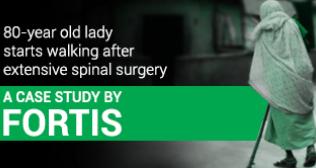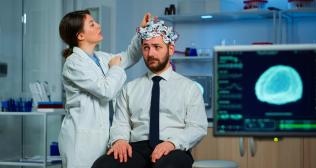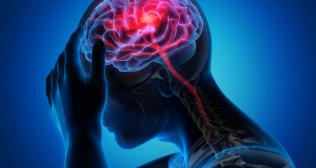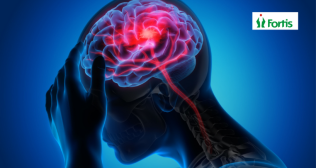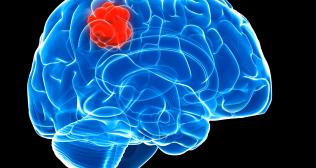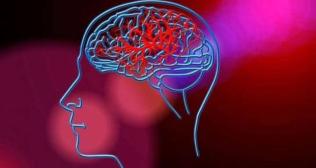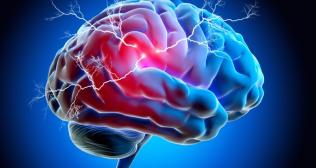
Best Stroke Treatment in Kalyan, Thane
Understanding Stroke: A Medical Emergency That Can't Wait
A stroke can change life in an instant. Often described as a “brain attack,” it occurs when the blood supply to part of the brain is interrupted or reduced, depriving brain tissue of oxygen and nutrients, every second counts in such a crisis.
Prompt treatment not only reduces brain damage but can also be lifesaving. At Fortis Hospitals, Kalyan, we believe that recognizing a stroke early, acting swiftly, and following through with the proper medical and rehabilitative care can significantly improve our patients' outcomes and quality of life.
Who Is at Risk of a Stroke?
Stroke can affect anyone, but certain factors can significantly increase the risk. People with high blood pressure, diabetes, high cholesterol, and heart conditions such as atrial fibrillation are more vulnerable. Smoking, obesity, excessive alcohol intake, and a sedentary lifestyle further compound the risk.
Family history and age, particularly those over 55, also play a role. Yet, stroke is not limited to the elderly. With changing lifestyles and increasing stress, younger individuals are now being diagnosed more frequently. Women during pregnancy or those on hormone therapy and individuals with clotting disorders are also at higher risk.
Recognizing the Symptoms of Stroke – Act F.A.S.T.
Stroke symptoms often come on suddenly. One may feel fine one moment and be unable to speak the next.
The acronym F.A.S.T. is a powerful tool in recognizing signs early: Face drooping, Arm weakness, Speech difficulty, and Time to call emergency services.
Other warning signs may include sudden numbness on one side of the body, confusion, loss of balance or coordination, blurred vision, or a sudden severe headache with no known cause.
If any of these symptoms appear, even if they disappear quickly, it is vital to seek immediate medical help. Delays can result in irreversible brain damage or death.
What Are the Different Types of Stroke?
Strokes are broadly categorized into three types, each with distinct causes and treatment approaches. Understanding the difference is key to providing timely and effective care.
Ischemic Stroke: The most common type, it occurs when a blood clot or fatty deposit blocks a blood vessel supplying the brain. This blockage cuts off oxygen, leading to cell death. Ischemic strokes account for nearly 85% of all stroke cases.
Hemorrhagic Stroke: This type of stroke is a caused by a ruptured blood vessel in the brain that leads to bleeding. It can result from conditions like high blood pressure, aneurysms, or trauma. The bleeding increases pressure inside the skull, damaging surrounding brain tissue.
Transient Ischemic Attack (TIA): A third and often less severe type, TIA is the commonly called a mini stroke. It happens when the blood supply to the brain is briefly interrupted, causing temporary symptoms. Although TIAs resolve within minutes to hours without causing permanent damage, they are severe warning signs of a potential full-blown stroke in the near future and should never be ignored.
Each type requires a different medical approach, and distinguishing between them quickly is crucial. Talking to our expert neurologists for specialized care at Fortis Hospitals, Kalyan, is vital in stroke management.
How Is Stroke Diagnosed?
At Fortis Hospitals, Kalyan, our stroke care team moves quickly to assess the patient. A detailed clinical evaluation is followed by advanced imaging, such as CT scans or MRI, to determine the stroke's type, location, and severity.
Blood tests, echocardiograms, and carotid ultrasounds may also be used to identify the underlying cause and to formulate a precise treatment plan. Time is critical, and our systems are streamlined to ensure rapid diagnosis and initiation of care within the ‘golden hour.’
Stroke Treatment at Fortis Hospital, Kalyan
The treatment approach depends on the type of stroke - ischemic (caused by a clot) or hemorrhagic (caused by bleeding).
- For ischemic stroke, clot-busting medications may be administered if the patient arrives within a specific time window.
- In some cases, mechanical thrombectomy is performed to remove the clot physically.
- For hemorrhagic strokes, surgical interventions or procedures to reduce pressure on the brain may be necessary.
At Fortis Hospitals, Kalyan, we offer comprehensive stroke management supported by a 24x7 emergency team, neurologists, neurosurgeons, critical care specialists, and rehabilitation experts.
Our Stroke Code Protocol ensures every stroke patient is given immediate, coordinated, and personalized care from the moment they arrive. You can trust that you or your loved one will receive the best possible care at every step of the journey.
Advanced Care and Neurorehabilitation
Recovery doesn’t end in the emergency room. Post-stroke rehabilitation is vital for regaining lost abilities and improving quality of life. Our in-house rehabilitation team at Fortis Kalyan includes physiotherapists, speech and occupational therapists, psychologists, and dieticians who work together to restore function and independence.
From mobility training and speech recovery to nutritional guidance and emotional counselling, we offer an integrated recovery plan tailored to each patient’s needs. We understand that every stroke and every recovery journey is unique.
Life After A Stroke
A stroke survivor often has to adjust to a new way of living. While some recover fully, others may have lasting challenges, such as difficulty speaking, walking, or managing daily tasks. At Fortis Hospitals, Kalyan, our support continues even after discharge.
We guide families on how to care for stroke survivors at home and offer follow-up care to monitor progress and prevent recurrence. We also counsel patients on managing risk factors like controlling blood pressure, adopting a heart-healthy diet, and adhering to prescribed medication to reduce the chances of a second stroke.
Empowering You With Awareness and Prevention
Prevention is a powerful tool in the fight against stroke. Fortis Hospitals, Kalyan, is committed to spreading awareness about stroke and its warning signs. Through community outreach programs, health check-up camps, and regular public education initiatives, we empower you with the knowledge to prevent stroke or act swiftly when symptoms strike.
For Emergency Services, Information, And Appointments, Please Call: 022 6884 6142
Categories
Clear allMeet the doctor

- Neurosurgery | Neurosurgery | Neuro and Spine Surgery
-
15 Years
-
1400







